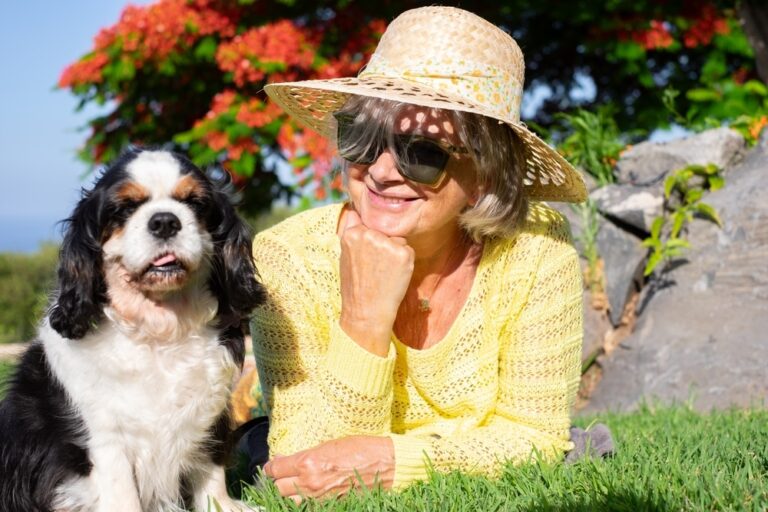The number of adults age 65 and older is growing, and older adults are at greater risk for social isolation and loneliness due to changes in health and social connections that can occur with aging, according to the National Institute On Aging. However, the company of a wagging tail or gentle purring can enrich the lives of older adults.
Benefits of pet ownership
One of the benefits of investing in a companion animal is that it offers an older population a renewed sense of purpose and responsibility in their daily lives.
Numerous studies have been conducted to assess the benefits of pet ownership. Pet owners tend to be more physically active, have a reduced risk of heart disease, and have more social interactions with others thanks to their pets. As a result, they often experience less loneliness and stress compared to people without pets.
Having a pet also adds structure to older owners’ days and keeps them busier as they build and maintain their pet’s daily routine, including regular meals, walks and playtime.
This routine can be mutually beneficial by improving physical activity, mental stimulation, and positive interactions for both the owner and the pet.
Additionally, pets help fulfill the emotional and caring instincts that many people have, especially for those whose children no longer rely on them for constant care.
Getting out of bed, dressing yourself, and taking care of the house and garden are often more important when another living being is relying on you. In addition, pets are often very affectionate and are excellent listeners, because they act as confidants for their owners.
Friends with pets
A perhaps unexpected consequence of pet ownership for the elderly is that a pet can draw them into their neighborhood, attracting neighbors and all kinds of friendly faces, easing isolation.
Older pet owners are often more social in their neighborhoods, both with fellow pet owners and with people without pets. Pets often encourage people to go outside for walks or to visit public places such as dog parks, horse stables, and so on, where they can interact with other people.
Forming connections in the community becomes much easier with an adorable companion by your side, because people feel more comfortable talking to or about an animal than directly with a stranger.
These relationships can often lead to people doing favors for each other, such as house sitting or feeding the neighbor’s pet. This can effectively foster a support system of non-family members to invest in the older adult’s well-being – especially when family is not around.
Challenges and considerations
The biggest priority in pet ownership for the elderly is to ensure that the owner can properly care for the animal they are committing to.
Specific challenges that older pet owners may face include:
- Difficulty administering medications for a pet’s chronic illness or other condition.
- Difficulty keeping up with the physical needs of more active pets, such as frequent walks, playing with toys, or riding horses.
- Taking pets to and from vet visits, traveling with owners, or seeking care when leaving town.
Behavioral problems are another potential hurdle for older owners. Extreme co-dependency can lead to great anxiety, which can occasionally create dilemmas for an elderly owner.
Finding the perfect match
When an older adult selects the “purrfect” pet to fit the specific needs in their life, there are several important factors to consider.
The size and type of pet depends entirely on the person.
Pets can range from horses, dogs, birds, fish and everything in between. A few things owners should consider when choosing a companion are their lifestyle and personal physical abilities; the cost of ownership; and breed characteristics.
Just like looking for a best friend whose lifestyle aligns with their own, their next furry best friend should crave the daily routine they can provide.
For example, owners who are unwilling or unable to go for walks, runs or long walks may want to avoid very athletic and energetic dogs.
Another consideration is to be on the lookout for pets showing signs of separation anxiety if the owner travels often and can’t bring their nervous furry friend along for the ride.
On a more serious note, older individuals who are more susceptible to autoimmune risks should be careful when choosing a fish, as some aquarium environments can carry the potential for disease transmission.
A lifelong companion
Investing in a furry friend can bring an enormous amount of joy and companionship to an older person’s life, as long as the owner is able to provide proper care.
Family can play an important role in making this pet ownership possible if they are willing to assist in the care of the animal to help minimize the challenges experienced by the elderly owner.
Often, the benefits of owning a pet far outweigh any potential complications or hurdles many seniors face in finding the right pet. Ultimately, owning a pet can make an isolated person feel loved and appreciated.

